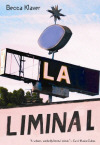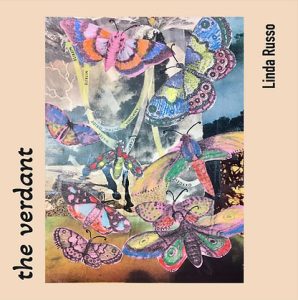LA Liminal
According to Merriam-Webster, liminal describes a threshold, an in-between state; it is defined as “of, relating to, or being an intermediate state, phase, or condition,” and it is the perfect adjective to describe the state of Becca Klaver’s poems in LA Liminal, her first full-length collection. Prose pieces woven throughout the book present a common narrative: a young lady from a Midwestern town moves to Los Angeles in hope to discover whatever it is that LA promises, grows disenchanted, and leaves. However, this tale is anything but common thanks to Klaver’s spin on the whole experience.
According to Merriam-Webster, liminal describes a threshold, an in-between state; it is defined as “of, relating to, or being an intermediate state, phase, or condition,” and it is the perfect adjective to describe the state of Becca Klaver’s poems in LA Liminal, her first full-length collection. Prose pieces woven throughout the book present a common narrative: a young lady from a Midwestern town moves to Los Angeles in hope to discover whatever it is that LA promises, grows disenchanted, and leaves. However, this tale is anything but common thanks to Klaver’s spin on the whole experience.
This is a smart and obsessed poetry, a long meditation on a city unreal. Even with details of film school and smoking cigarettes on the balcony of her apartment, Klaver knows her own memories are abstractions. In “How to Abstract A Place,” she instructs, “Never go back,” and while the old saying, you can’t go home again, is always in the background, Klaver faces it head on in one of the prose pieces: “You can’t go home again, but I did and I refused to listen, so that certain things were taken from me, or I made certain sacrifices. There seems to be a distinction there, but the results are the same. You can always come back, but you can’t come back all the way.”
The italics come from Dylan, and this type of reference is common in this collection, which refers to writers, singers, theorists, filmmakers, and others. “Southern California Gothic” is a good example. In each of its six stanzas, the poem mentions someone else’s vision of LA, going from The Mountain Goats, to Gillian Welch & Nina Nastasia, to Joan Didion, to David Hockney, to David Lynch, to Buffy the Vampire Slayer. Klaver’s own vision of LA could be (and is) placed alongside these. And though this is a book so heavily based in and about Los Angeles, the humor, intelligence, and emotion will speak to anyone who has dreamed about something more than what he or she already has and to anyone who has experienced loss of those dreams.





